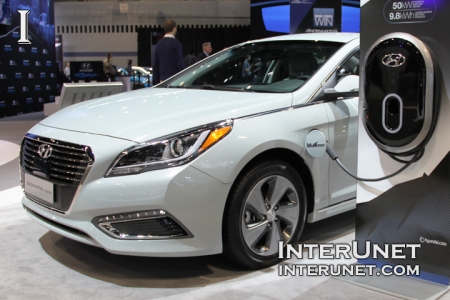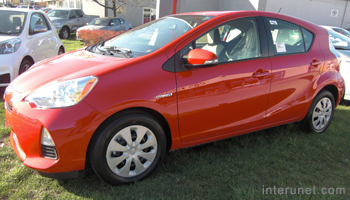
Hybrids are vehicles which have two or more energy sources for powering the car. Typically regular gasoline engine will work in combination with an electrical battery which helps significantly reduce traditional fuel consumption. In some hybrids electric battery will charge transforming kinetic energy generated by gasoline engine while vehicle is moving or braking. In addition plug-in hybrids will use an external power supply for recharging the battery. There are few factors to consider while shopping for a hybrid car.
Cost and practical use
First of all, hybrid cars have a higher initial price. Depending on a car make and model the difference between the vehicles equipped with gas and electric engines will be 20 – 50% more compare to a car with a gasoline motor only. Plug-in hybrids might be even more expensive. Toyota Prius plug-in Hybrid estimated at $32,000 MSRP with a fuel economy 95 MPG in electric mode and 50 MPG combine electric and gas. Technically the car will not use gas at all if driving short distances (less than 11 mi). And while 30 - 35 MPG is a good gas mileage for many compact vehicles there is a good way to cut fuel expenses significantly. But for half price you spend initially on Toyota Prius plug-in Hybrid it is possible to get a new Honda Civic and do not wait a few years of return the investment if the budget is very low.
Drivers might enjoy of getting 5 – 6 miles more per gallon of gas when buy a hybrid Chevrolet Tahoe comparing to the regular model, but have to spend $12,000 - $13,000 more initially which might not be the best decision if you drive only 6,000 – 7,000 miles per year. On the other hand, such investment will make more sense if you average 20,000 – 25,000 miles yearly, but still it will take years to offset your extra car cost with the future benefits you might get while saving on gasoline.

Environmental concerns
Hybrid cars are low emission vehicles and driving such auto significantly decreases CO2 pollution because less fuel burns, but when it comes to “go green” it is not that simple. Production of batteries is very toxic process plus it might consume more energy to build a hybrid vehicle compare to conventional car. Other factor is recycling batteries not very environmental friendly process. But while many myths still exist most of experts agree hybrid cars are much better for environment comparing to traditional cars which burn more gasoline for producing power and operate the vehicle.
Other things to consider while shopping for a hybrid car
There are definitely many advantages when it comes to a hybrid vehicle. They are durable enough as any other regular vehicles. Some manufacturers like Toyota or Ford offer 8 years or 100,000 miles manufacturer warranty on hybrid related components. Additional electrical engine gives less wear on the gasoline engine and braking system. You will get better mileage while driving the hybrid especially in the city and at low speeds.
Evaluate disadvantages
Battery replacement might be very costly. Gas mileage might significantly decrease if the car will be used in cold climates with low temperature. With some time the battery will not perform as good as a new one and it won’t get best mileage any longer nor in the city nor in the high traffic
The most important factor is a price. Paying more than 20% invoice price for the hybrid might newer paid back if you drive a low miles. But with constant increasing the gas prices and traveling long distances hybrid vehicle might be a good car option to consider.

Comments
Have been driving Prius for
Have been driving Prius for almost 4 years making app. 25,000 mi/year and it was the best car purchase in my whole car shopping history. In a couple years want to try their electric hybrid.